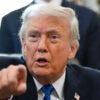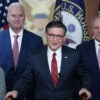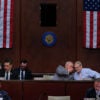The Obama administration has decided to terminate the suspensions of issuance of temporary munitions export licenses for exports regarding C-130 Hercules cargo aircraft that will be used in oil spill response operations at sea that might involve the People’s Republic of China (PRC). That’s bureaucratese for lifting restrictions on the use of U.S. made C-130s for use in China – part of a much more general restriction regarding U.S. military equipment in place since the 1989 Tienanmen massacre.
The move is wrongheaded, not for the specific assistance it provides China, but because of the many questions it raises. The incident demonstrates the importance of paying careful attention to one’s actions, especially how those actions may be perceived—and what happens when you fail to do so.
The administration issued this waiver in a letter to House Speaker Nancy Pelosi, with little fanfare. It apparently expected little reaction to a minor administrative change. Indeed, it is important to note here that this waiver does not open the door to the sale of C-130 transport aircraft to China. Any such sale would be fundamentally dangerous to the security of Taiwan, since it would provide an increase in the ability of the People’s Liberation Army (PLA) to undertake airborne operations against the island. Clearly, it would not be in American interests to sell transport aircraft to China—and the Administration is smart enough to recognize that.
What the administration apparently utterly failed to recognize is that any waiver of arms-related technology to the PRC is controversial. Moreover, releasing the news on a Friday further raised suspicions (releasing news on a Friday used to mean it would be publicized on Saturday—a notoriously dead day in pre-Internet news cycles), making it appear that there was something to hide. Such concerns were exacerbated, since the release occurred on the eve of the meeting between Secretary of Defense Robert Gates and his Chinese counterpart General Liang Guanglie at the ASEAN defense conference.
Worst of all, the waiver of the sanctions was authorized at the same time that China was busily denouncing the award of the Nobel Peace Prize to dissident Liu Xiaobo and sequestering his wife. This last aspect raised further questions about the timing of the waiver, since there are no oil spills publicly reported in China—and Beijing has not asked for such aircraft to provide support in past instances.
None of this suggests that the Administration is about to begin selling C-130 aircraft to the PRC, and charges to that effect would seem misplaced. But the Administration has no one but itself to blame for failing to recognize the sensitivity of any waiver of export controls.
More to the point, this incident should serve as a warning to the administration that it cannot afford to operate its foreign policy on “autopilot.” Its every action, especially relating to China, will be subjected to maximum scrutiny. It cannot send signals to China – in this case, one suspects to demonstrate to the PLA the value of talking to the U.S. – and not expect those signals to reverberate in bigger, more important ways. Mil-to-mil talks with China is certainly not worth pulling on the string that inadvertently unravels the very prudent military sanctions on China.
One can only hope that this will make the Administration pay much closer attention to how its various actions are likely to be perceived, such as the impending visit of NASA Administrator Bolden to the PRC to discuss issues of cooperation in manned spaceflight.































One Reply to “It’s Not About the Hercules”